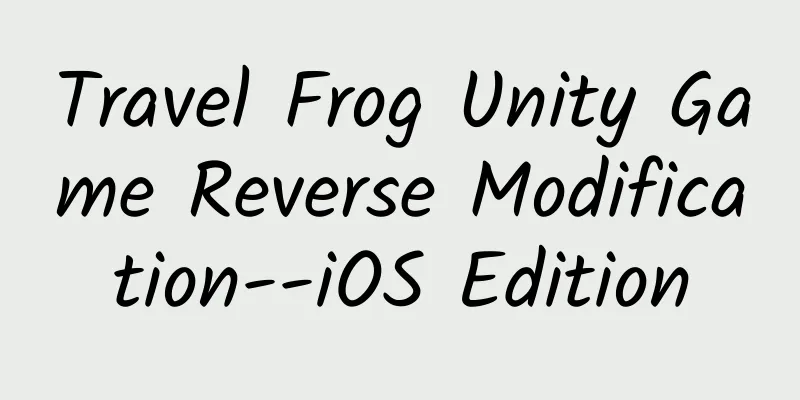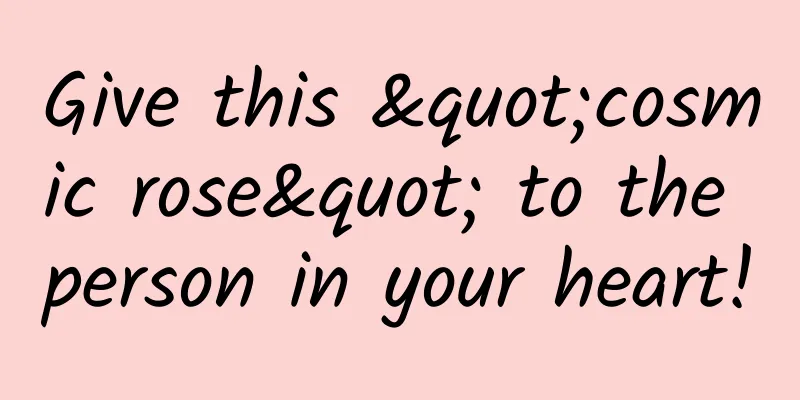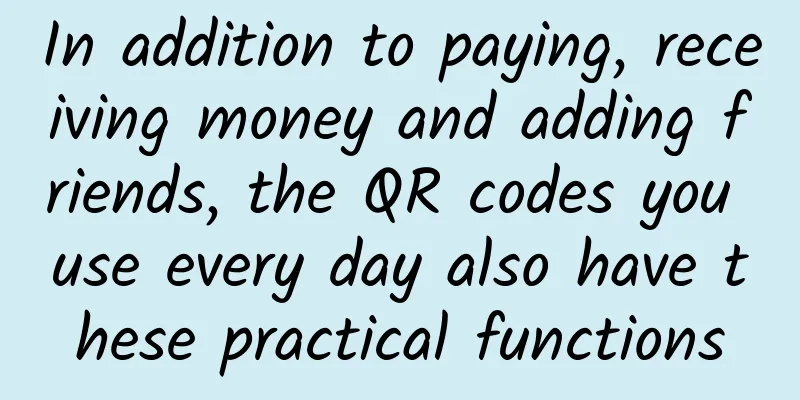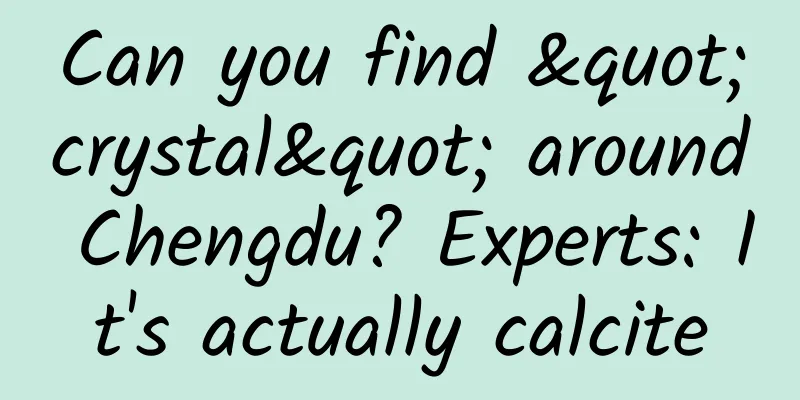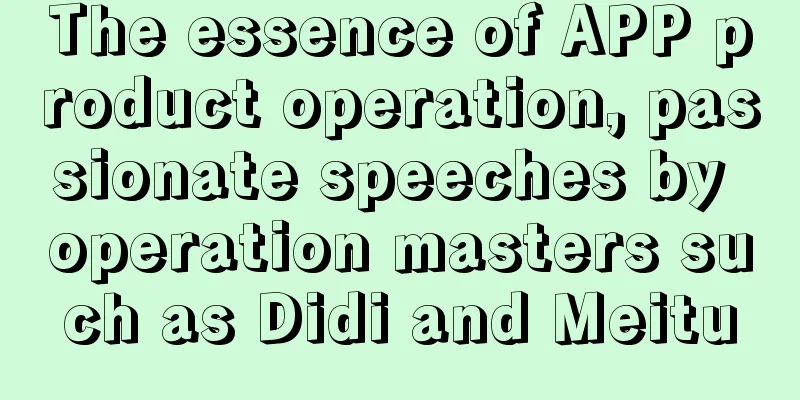When APP is obsessed with algorithms, can we understand "ourselves" through personalized customization?
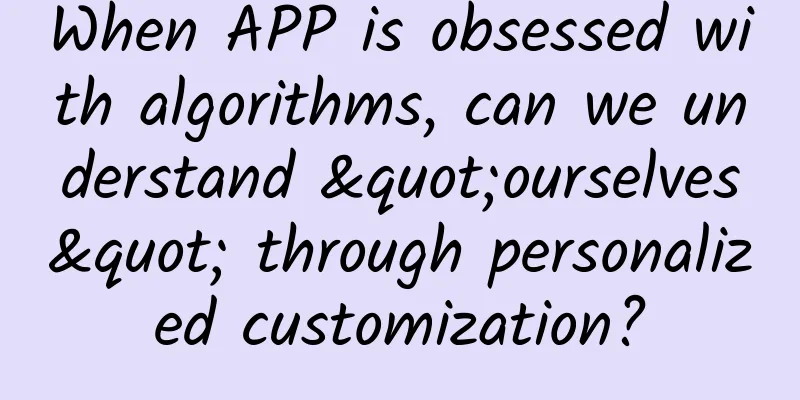
|
In today's world where algorithm recommendations are popular, the one who knows you better than you do is neither your friend nor your enemy, but may be your APP. From time to time, we are always shocked by the precise way various apps can find us. The product recommendations on Taobao and JD.com always make you wonder if you are being monitored. Even an "innocent place" like Zhihu seems to be secretly working to constantly portray your user portrait. Being guessed by your boyfriend that your inner thoughts are pink, and being guessed by your own app always has some complicated emotions. Being understood by an algorithm, although it can appropriately send you a song or an article, such understanding is still a bit lonely. We always want to live a rich life and see ourselves as a multifaceted prism, ever-changing and mysterious. However, this programmed algorithm seems to simply portray and copy you. Thinking back from this question, can we use different apps to complete a journey of self-exploration? How Algorithms Know You Since you want to use these invisible but powerful behind-the-scenes forces to stage a good show of "turning the tables", then just jump on the "altar" and see. The emergence of recommendation algorithms is directly related to the changes in the human information environment. From the era of information scarcity to the era of information overload, everyone suddenly finds themselves facing a new dilemma in obtaining information: the inefficiency caused by the huge amount of information. The recommendation algorithm is designed to solve this problem. With personalized recommendations and effective reduction of redundant information, recommendation algorithms have been widely used at home and abroad. From Amazon, YouTube, Google to Toutiao, NetEase Cloud Music, Taobao and JD.com, algorithms have become a concept that is almost magical. The adjustment of Amazon's recommendation algorithm has caused considerable shock to sellers At present, content recommendation and collaborative filtering are very mainstream recommendation algorithms. Content-based recommendation algorithms are particularly suitable for parsing text content. A piece of text is regarded as an item, and through continuous extraction and refinement, countless tags are added to the text to form a taglist. When users make personalized recommendations, they can list the items that the user has recently operated on, use these taglists to simulate a user model, and then use the inverse search engine to recommend candidate results to the user. In China, the most typical representative of the CB algorithm is Toutiao. Content-based recommendation algorithms are the oldest After Toutiao, all news and information apps adopted recommendation algorithms. The processing characteristics of text information have made content-based recommendation algorithms the mainstream. Collaborative filtering is a type of recommendation based on collective intelligence. For example, by analyzing the items that users like, it is found that user A and user B are very similar and both like the same content. Then, item C, which user A likes but user B has not liked yet, can be recommended to user B. Another type of collaborative filtering is based on the item itself (item-based, CF). This type of recommendation does not need to find item B that is similar to user A, but is completely based on the individual behavior of user A. If item A and item B are very similar, and user A likes item A very much, then B can be recommended to the user. The backend algorithm of NetEase Cloud Music is mainly based on these two collaborative filtering algorithms. In addition, deep learning based on artificial neural networks is also a very common recommendation algorithm. Excluding those detailed and huge calculation equations and operation processes, the description of the underlying logic of the recommendation algorithm is no more than a hundred words. Even the AI algorithm that sounds mysterious is nothing more than a more complex mathematical model. In an age when myths are dead, science has become the biggest myth. Using the method of calculation to calculate oneself - an incomplete guide to scientific APP domestication In practice, the personalized recommendation systems followed by these apps are much more complex. From another dimension, taking NetEase Cloud Music and Toutiao as examples, their recommendation algorithms can be divided into official recommendations, UGC user recommendations, and popular recommendations (weighted by popularity). When an APP faces a new user, due to the lack of user behavior data, accurate and personalized recommendations are like "a good cook cannot cook without rice". At this time, the recommendations for new users will provide him with songs that most people like. This official recommendation, which is similar to the market data, can prevent you from being so overwhelmed when you first enter the app. When users continue to search, collect, like, comment and other behavioral data on the app, the algorithm can derive a huge recommendation library based on you and your favorite songs. However, based on the underlying logic of APP's personalized recommendations, we can still use conscious behavior to scientifically train the app. On news and information apps, the main principle of recommendation is based on the user's reading behavior. The more often you click on a certain type of article, the more likely you are to be recommended the same type. Information apps have many interest topics, and when entering these apps, users need to complete a series of simple choices. This initial and simple active choice has formed many differentiated user groups. With this clustering method, we, who are new and have not yet been "figured out", actually have a simple facial features. Interest categories on the spot However, such classification is often too superficial, especially when gender is used as an important classification variable, which makes it appear to be gender-stereotyped. New users who have installed Jiji need to complete two multiple-choice questions before entering the app homepage, first the gender option, then the detailed interest classification. If you choose to be a male user in the first step, then on the second interest classification page, you will see interest topics such as technology, games, the second dimension, men's dressing guide, military and cars. When you choose a female character, the topics become cute pets, variety shows, skin care, and women's safety. If you are an "atypical" female user who is interested in technology and the outdoors and wants to obtain information efficiently on information apps, you have to constantly spend time and energy to get used to the hidden and invisible algorithms. We are all similar but also different. If you want an app that can "understand you", you can't wait. The Little Prince called love taming: "If you tame me, we will need each other and become each other's most special existence." After browsing through many personalized recommendation apps, the dream of traveling the world with a sword and domesticating apps with great ambition seems to have become a false proposition. Because when you complete this two-way game, you and your app become "the most special existence to each other." Isn't this a game of mutual training? Role-playing: an unclear game On NetEase Cloud Music, the playlist on the homepage has become a reflection of one’s mood and status. You can be a postgraduate student who is struggling to keep up with a list of inspirational songs in this scorching summer, or an insomniac whose playlist is full of alpha waves and natural sounds, or a lover of British accents who has watched the BBC Benedict Cumberbatch dubbed version of "Southern Pacific" and loves the original soundtracks of various documentaries... This kind of role-playing game has a long history in human genes. Whether it is myths, novels, dramas, or the many identities we have after the Internet, if you trace them back, they are all a kind of role-playing. Once upon a time, we played some lonely roles, hidden in the binary world. Each of us more or less maintained some small accounts and another self, playing the role of little pinks on Weibo, middle school boys and star-chasing girls. But now, we seem to have met our match and started a game of mutual competition with the algorithm. Sometimes, these recommendation algorithms amaze us. Those recommendations that we have never heard of but particularly like seem to always hit your soft spot in the right weather and the right atmosphere. This kind of recommendation is sometimes a little silly. It even makes you feel scared. However, when the game came to an end, I felt that the algorithm was difficult but simple, and the self was simple but complex. In more than a dozen apps and hundreds of "I choose, you guess" interactions, I remembered this sentence from the movie "Crash": "It will take you many years to know what you are." Before this experiment began, I thought I would get a definitive answer in the end. But, unfortunately, I seem to have learned more about algorithms, personalized recommendations, finding fun, and building apps that are more "me", but my attitude has become more complicated. As a person with a humanities background and a keen interest in criticism, I have an almost instinctive wariness of such technological worship. However, as Gini Roman said, "We will enhance human intelligence, not 'artificial' intelligence." We have to admit that an imaginary enemy can help you understand yourself better. While "fighting wits and courage" with these recommendation algorithms, we perceive our self-worth, self-enthusiasm, and self-behavior patterns from another dimension... From these app experiments, for various purposes, I tried hard to dig out various "me"s, whether they are science or social science, innocent or mature, but I finally had to admit that I am indeed a superficial person. I love celebrity anecdotes and humorous essays the most. In the name of writing articles, I don’t know how long I have been on Zhihu reading "How to evaluate XX star"... Faced with these traces, I can't argue. From a psychological perspective, role-playing is a universal human ability. From playing house as a child to playing games as an adult, we are all role-playing. Role-playing as an adult can help people make better changes, help you "realize" unfulfilled wishes, and allow you to regain a sense of freshness in your daily life. Algorithms are constantly learning and surpassing themselves, and so are we. Five thousand years ago, Socrates wrote "know thyself", an important but most difficult pursuit; today, perhaps we are closer to this dream, but with the help of those apps on our mobile phones. |
<<: What problems has Apple’s core business encountered in the past year?
>>: Why have domestic mobile phones made a comeback?
Recommend
A small sleeping habit may damage the heart and blood vessels! Check if you have it
Some time ago, a celebrity wore a mouth guard to ...
2021 Yixiantian Chip Tactics Yixiantian System Development Plan Video Collection
2021 Yixiantian Chip Tactics Yixiantian System De...
Unexpectedly, this nut extract can prevent fat accumulation
Compiled by: Gong Zixin Obesity is a significant ...
Yuanfudao product analysis report!
On March 31, 2020, Yuanfudao Online Education off...
Brand marketing strategy, understand these 4 points!
Go-to -Market Strategy refers to the marketing st...
Android phones are reaping the benefits of high refresh rates, so why is the iPhone 12 still absent?
Recently, there have been more and more revelatio...
Skills and strategies for new media operations!
New media operation concept mind map Through the ...
How to conduct brand marketing in the 2018 World Cup? Is your marketing plan ready?
In 20 days, the World Cup, which attracts the att...
Apples vs. pears, which one is easier to preserve? | There is great science in life
Today we are going to talk about two very common ...
35 essential lessons for novices in live streaming: the entire process from a novice to live streaming, a set of systematic live streaming methodology
35 essential lessons for novices in live streamin...
Some basic techniques for operation, promotion and attracting new customers!
Operations is a very complex business system. Gen...
New discovery: meteorites brought water to Earth. Are meteorites the source of life?
Scientists discover liquid water in meteorites, c...
How to place KOLs on Weibo and WeChat to achieve the maximum effect?
Kol, Key Opinion Leader, is basically those peopl...
BMW has Jaguar Land Rover disease, the 180,000 yuan i3 broke the hearts of Audi, Mercedes-Benz and Porsche
Among the new energy vehicle models launched by M...
Business logic splitting based on micro frontend
1. What is a micro frontend? Micro frontends are ...

